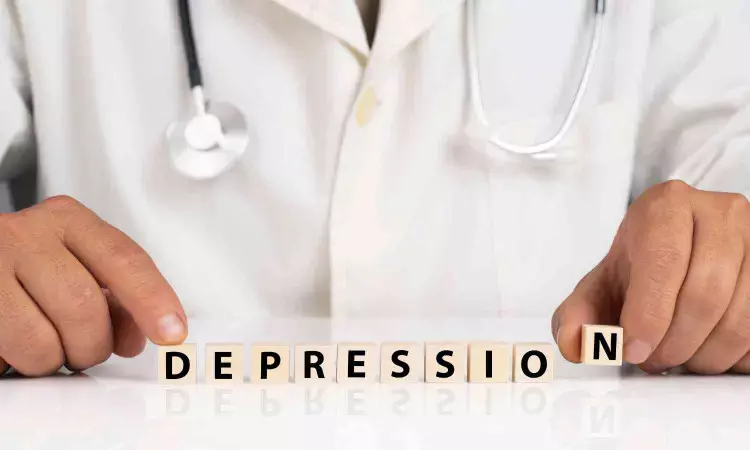- Home
- Medical news & Guidelines
- Anesthesiology
- Cardiology and CTVS
- Critical Care
- Dentistry
- Dermatology
- Diabetes and Endocrinology
- ENT
- Gastroenterology
- Medicine
- Nephrology
- Neurology
- Obstretics-Gynaecology
- Oncology
- Ophthalmology
- Orthopaedics
- Pediatrics-Neonatology
- Psychiatry
- Pulmonology
- Radiology
- Surgery
- Urology
- Laboratory Medicine
- Diet
- Nursing
- Paramedical
- Physiotherapy
- Health news
- Fact Check
- Bone Health Fact Check
- Brain Health Fact Check
- Cancer Related Fact Check
- Child Care Fact Check
- Dental and oral health fact check
- Diabetes and metabolic health fact check
- Diet and Nutrition Fact Check
- Eye and ENT Care Fact Check
- Fitness fact check
- Gut health fact check
- Heart health fact check
- Kidney health fact check
- Medical education fact check
- Men's health fact check
- Respiratory fact check
- Skin and hair care fact check
- Vaccine and Immunization fact check
- Women's health fact check
- AYUSH
- State News
- Andaman and Nicobar Islands
- Andhra Pradesh
- Arunachal Pradesh
- Assam
- Bihar
- Chandigarh
- Chattisgarh
- Dadra and Nagar Haveli
- Daman and Diu
- Delhi
- Goa
- Gujarat
- Haryana
- Himachal Pradesh
- Jammu & Kashmir
- Jharkhand
- Karnataka
- Kerala
- Ladakh
- Lakshadweep
- Madhya Pradesh
- Maharashtra
- Manipur
- Meghalaya
- Mizoram
- Nagaland
- Odisha
- Puducherry
- Punjab
- Rajasthan
- Sikkim
- Tamil Nadu
- Telangana
- Tripura
- Uttar Pradesh
- Uttrakhand
- West Bengal
- Medical Education
- Industry
Inflammation May Be the Link Between Chronic Pain and Depression, suggests study

Chronic pain-or pain that lasts at least three months-is closely intertwined with depression. Individuals living with pain's persistent symptoms may be up to four times more likely to experience depression, research shows.
Almost 30% of people worldwide suffer from a chronic pain condition such as low back pain and migraines, and one in three of these patients also report co-existing pain conditions.
Now, a new study published in Science Advances shows that a person’s risk of depression increases alongside the number of places in the body in which they experience pain. Furthermore, inflammatory markers such as C-reactive protein (a protein produced by the liver in response to inflammation) help explain the association between pain and depression.
This finding suggests that the mechanisms underlying chronic pain and depression may be driven by systemic inflammation, the researchers say.
“Pain isn’t only physical,” says Dustin Scheinost, PhD, associate professor of radiology and biomedical imaging at Yale School of Medicine (YSM), and the study’s principal investigator. “Our study adds to the evidence that physical conditions can have mental health consequences.”
Inflammatory markers may explain depression risk
The Yale team analyzed data from the UK Biobank-a long-term study in the United Kingdom that has collected extensive health information from more than 400,000 individuals over 14 years. UK Biobank participants reported whether they were experiencing pain that interfered with daily life and identified the sites and duration of their pain. The categories for pain sites included head, face, neck, back, stomach, hip, knee, and general pain. The dataset also included if and when the participants were diagnosed with depression.
The researchers analyzed data from participants with both chronic and acute (lasting less than three months) pain. They found that both types of pain from all body sites were associated with depression, and that chronic pain was more strongly associated than acute pain. Furthermore, having chronic pain in multiple parts of the body was linked to a greater risk of depression than having pain at a single site.
The UK Biobank also included assessments of participants’ blood. The Yale researchers used these data to look for inflammatory markers, such as C-reactive proteins, platelets, and white blood cells.
They found that several of these inflammatory markers helped explain the relationship between pain and depression—and C-reactive proteins in particular were the strongest variable.
“This gives us some preliminary evidence about the inflammatory mechanisms underlying the association between pain and depression,” says Rongtao Jiang, PhD, postdoctoral associate at YSM and the study’s first author.
Illuminating the brain-body connection
The study adds to growing evidence highlighting the significance of the brain-body connection, the authors say.
“We often think of brain health or mental health as separate from cardiac health or liver health, for instance,” says Scheinost. “But all of these body systems influence each other.” Further research into the underlying drivers of pain and depression could help scientists develop new intervention strategies, he adds.
Most of the participants studied were of European ancestry. In future studies, Jiang says he is interested in studying whether these findings also apply to individuals of other ethnicities. Scheinost’s team is also studying the association between chronic pain and opioid use disorder.
“This is another disorder that goes hand-in-hand with the experience of chronic pain,” Scheinost says.
Reference:
Rongtao Jiang et al. ,The inflammatory and genetic mechanisms underlying the cumulative effect of co-occurring pain conditions on depression.Sci. Adv.11,eadt1083(2025).DOI:10.1126/sciadv.adt1083
Dr Kamal Kant Kohli-MBBS, DTCD- a chest specialist with more than 30 years of practice and a flair for writing clinical articles, Dr Kamal Kant Kohli joined Medical Dialogues as a Chief Editor of Medical News. Besides writing articles, as an editor, he proofreads and verifies all the medical content published on Medical Dialogues including those coming from journals, studies,medical conferences,guidelines etc. Email: drkohli@medicaldialogues.in. Contact no. 011-43720751


